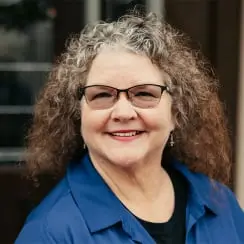 | 1 LU / HSW |
 | 1 LU / HSW |
Room: D137-138
Audience: Architects
Call to Action: Participants will be sent forth with a call to utilize information shared in this session to closely examine architectural plans for new facilities as well as renovation projects with a watchful eye to recognize and remove barriers inhibiting students with disabilities from gaining access to an equal learning and extracurricular activity experience as the general population.
Abstract: Designing accessible and equitable learning environments that amplify the potential and support the well-being and learning journey of students with disabilities allows them to excel and be productive during their educational years and beyond. Ensuring accessibility for all school children through compliance with the Americans with Disabilities Act (ADA) is a noble goal, but how is this accomplished when financial resources are limited? What are the priorities? What are the ramifications of non-compliance with state and federal access standards? In this informative session, participants will learn where to spend dollars on ADA facility upgrades when dollars are tight and how to address the needs of all students, including underserved groups, protecting schools from complaints and lawsuits. Beginning with a very brief history of the ADA, the session quickly segues into identifying the key access areas on school campuses. Citing both Department of Justice established priorities and actual campus related complaints/lawsuits, it will become clear where resources should be directed when fulfilling their continual barrier removal obligation. This presentation addresses the disruptive forces of social injustice surrounding physical and attitudinal barriers students with disabilities experience in schools today. Information will be shared that creates an optimistic and more effective future for this population by providing creative design solutions to address access barriers, opening doors that previously were closed to students with disabilities. A question-and-answer session will allow attendees to clarify many of their questions and concerns, both technical and otherwise, with a true expert in the field of accessibility compliance.
Learning Objectives:

Kristi is a nationally renowned leader in providing accessibility consulting services and is a sought-after speaker with a knack for using an upbeat approach to help others understand the complexities of ADA compliance. For over 40 years, Kristi has been involved with agencies and organizations that have shaped accessibility legislation and trends. Her company, Accessology Too, LLC, is a national leader and one of the largest U.S. firms dedicated solely to access issues.
Design of Educational Facilities
Acts as a resource to the design team in providing ongoing guidance and support to ensure that the emerging and ultimate design aligns with the established community vision, education goals, future programming, written design standards, best/next practices and education policy.